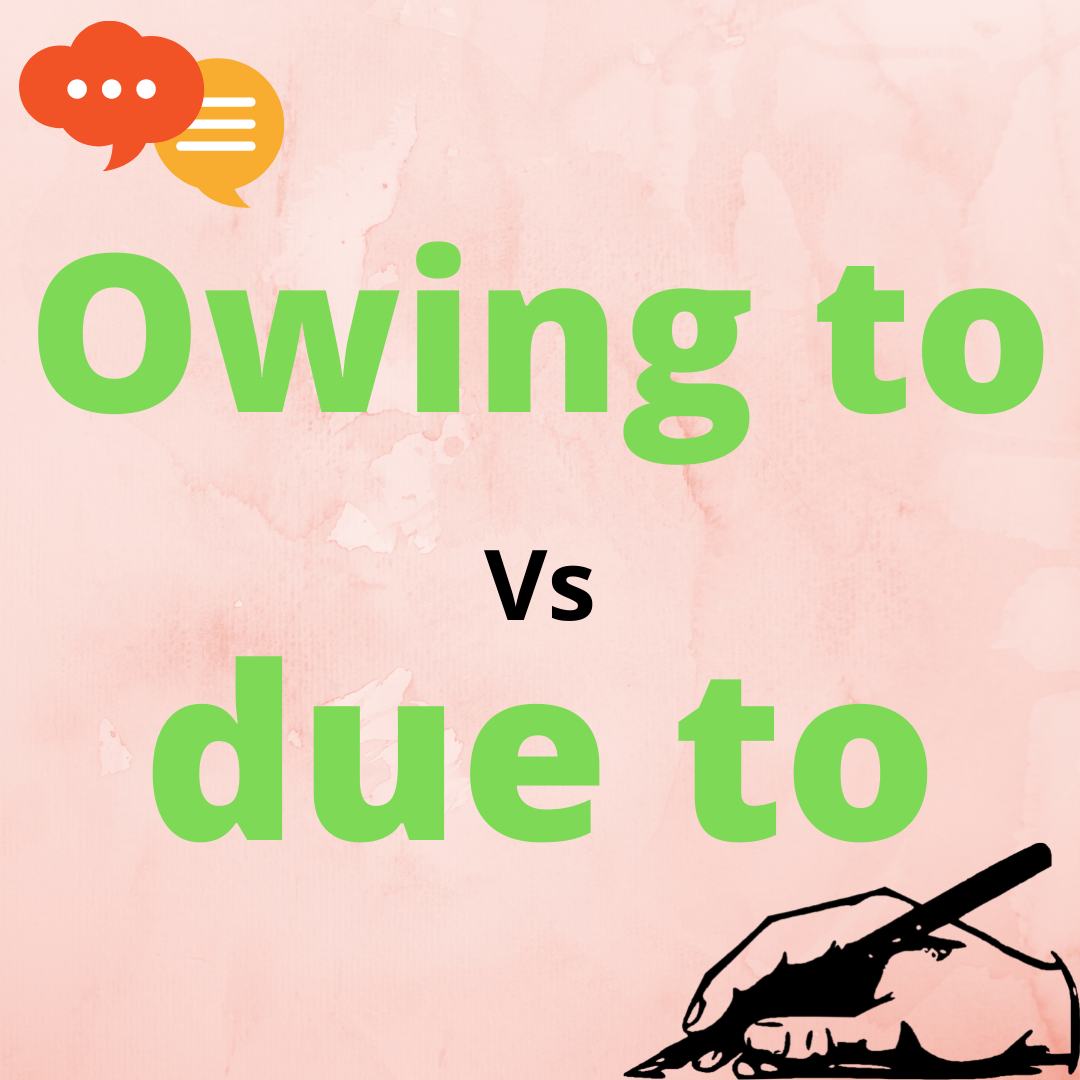There is a difference between “Due to” and “Owing to” in meaning. “Due to” means “caused by”, however, “Owing to” means “because of”. The correct usage of each is defined as follows:
Use of Due to/ Owing to
1) Due to
A) : It is used with time and means ‘ expected’ Ex: The match is due to start at 10.00 a.m.
B) It also means ‘a result of’. Ex: The accident was due to carelessness.
2) Owing to: means ‘because of’.(It is always used in the beginning of a sentence) Ex: Owing to his problems he thinks too much.
Incorrect
On the second hand, we will talk about the disadvantages. “Due to” the increase in population, there is an excess use of natural resources, this is causing the exhaustion of the same at a faster rate. The human today consumes more resources “owing to” the dependency on machinery and techonology…
Correct
On the second hand, we will talk about the disadvantages. Owing to the increase in population, there is an excess use of natural resources, this is causing the exhaustion of the same at a faster rate. The human today consumes more resources “due to” the dependency on machinery and techonology…
Exercise
1. Jane is ……. to come at six.
2. His bad situation was ……. his lies.
3. ……. your lies you are now in a bad situation.
4. The race is ……. to start in ten minutes.
5. ……. your negative way of thinking you lost your friends.
6. Your English is better ……. Anglaisfacile.
7. When is your train ……. to arrive ?
8. ……. his carelessness we had an accident.
Answers
1. due to
2. due to
3. Owing to
4. due to
5. Owing
6. due to
7. due to
8. Owing to

